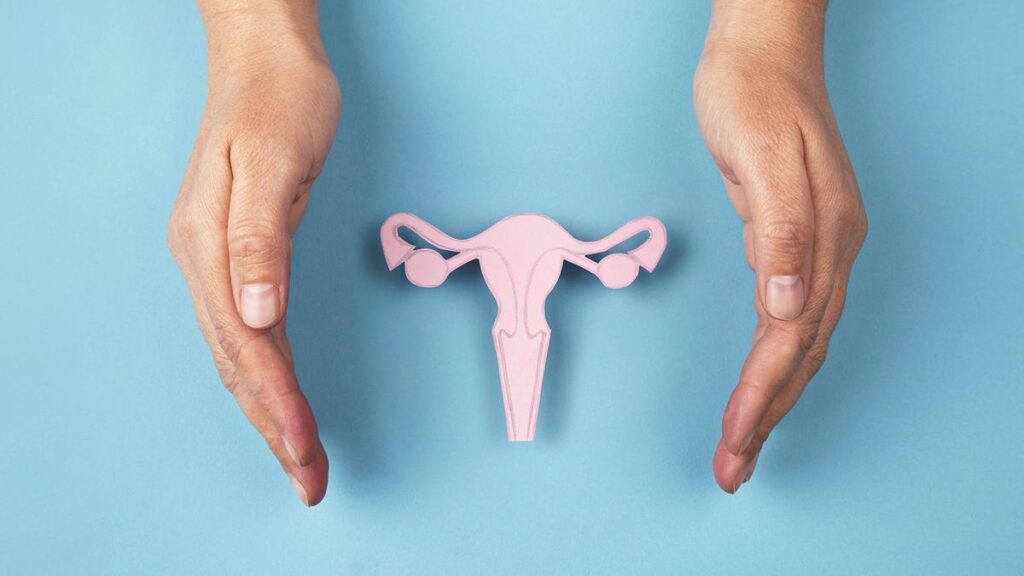
Indigenous HPV tests to strengthen cervical cancer screening launched
Indigenous HPV Tests: Revolutionary Approach to Strengthen Cervical Cancer Screening in India
In a significant development for women’s healthcare in India, indigenous HPV tests for cervical cancer screening were officially launched at a high-profile event in Delhi on Thursday. Union Minister of State for Science and Technology, Jitendra Singh, inaugurated these domestically developed testing solutions that promise to transform the landscape of cervical cancer detection and prevention across the country. The breakthrough represents a crucial milestone in India’s journey toward healthcare self-reliance and addressing one of the most pressing women’s health challenges.
Table of Contents
The National Validation Program for Indigenous HPV Tests
The launch of these indigenous HPV tests marks the culmination of a comprehensive national program titled “Validating Indigenous Human Papilloma Virus (HPV) Tests for Cervical Cancer Screening in India.” This strategic initiative, supported by GCI-BIRAC-DBT (Grand Challenges India-Biotechnology Industry Research Assistance Council-Department of Biotechnology), was specifically designed to develop and validate locally produced HPV testing solutions tailored to India’s unique healthcare needs and challenges.
The program represents a collaborative effort between government bodies, research institutions, and private sector innovation. By focusing on indigenous development, the initiative aims to address several critical factors:
- Cost-effectiveness to ensure widespread accessibility
- Technical accuracy meeting international standards
- Adaptability to varied healthcare infrastructure across India
- Ease of implementation in resource-limited settings
- Sustainable manufacturing within India
Through rigorous multicentric clinical studies conducted across leading research institutions in India, the program has successfully validated two domestically developed HPV test kits, establishing their effectiveness in the Indian context. This validation process ensures that the indigenous HPV tests meet both international quality standards and local implementation requirements.
Union Minister Jitendra Singh launching the indigenous HPV tests for cervical cancer screening in Delhi
Validated Indigenous Testing Solutions
Two key players in India’s diagnostic landscape have successfully developed indigenous HPV tests under this program: Mylab Discovery Solutions and Molbio Diagnostics. Both companies have demonstrated their capability to produce high-quality, reliable testing solutions that address the specific needs of cervical cancer screening in India.
Mylab’s Pathodetect HR HPV Hi-Res DNA test particularly stands out for its innovative approach. Designed to run on the company’s automated Compact platform, this solution enables:
- High-throughput screening capabilities critical for population-level programs
- Accurate detection of high-risk HPV strains most associated with cervical cancer
- Scalability across different healthcare settings, from tertiary hospitals to primary care centers
- Automated processing that reduces human error and ensures consistency
The validation of these indigenous HPV tests through multicentric clinical studies ensures that they meet the specific requirements of India’s diverse population and healthcare infrastructure. This localized approach to validation is crucial for ensuring that the tests perform effectively in real-world Indian healthcare settings.
Benefits of Indigenous HPV Test Development
- Reduced dependency on imported testing solutions
- Significant cost savings for the national healthcare system
- Tailored to genetic and epidemiological patterns specific to the Indian population
- Strengthened domestic medical manufacturing ecosystem
- Enhanced accessibility through local production and distribution networks
India’s Cervical Cancer Burden
The development of indigenous HPV tests addresses a critical public health challenge in India. Cervical cancer remains the second most common cancer among Indian women, with the country accounting for approximately one-fifth of the global cervical cancer burden. Every year, over 120,000 women in India are diagnosed with cervical cancer, and nearly 67,000 die from the disease—a tragedy magnified by the fact that cervical cancer is largely preventable with proper screening and early intervention.
Several factors contribute to India’s high cervical cancer rates:
- Limited access to regular screening, particularly in rural and underserved areas
- Low awareness about HPV infection and its connection to cervical cancer
- Inadequate healthcare infrastructure for comprehensive women’s health services
- Social and cultural barriers that delay seeking medical care
- High cost of imported screening technologies
The availability of validated, indigenous HPV tests represents a significant step toward addressing these challenges. By enabling more accessible and affordable screening, these tests have the potential to dramatically reduce the burden of cervical cancer in India through early detection and timely intervention.
Implementation of indigenous HPV testing in a community health center
Key Features of the Indigenous HPV Tests
The indigenous HPV tests developed by Indian companies incorporate several innovative features that make them particularly suitable for implementation across India’s diverse healthcare landscape. These technologies balance sophisticated diagnostic capabilities with practical considerations for real-world deployment.
Mylab’s RTPCR-based HPV diagnostic test kit offers several advantages crucial for widespread implementation:
- Rapid results: Delivers actionable diagnostic information in a timeframe that allows for immediate counseling
- Point-of-care capabilities: Can be deployed in various healthcare settings, reducing the need for sample transportation
- Comprehensive detection: Identifies multiple high-risk HPV strains associated with cervical cancer
- Simplified workflow: Requires minimal technical expertise, expanding potential implementation sites
- Cost efficiency: Significantly more affordable than imported alternatives
These features are particularly important for deployment in underserved areas where access to advanced laboratory facilities may be limited. The point-of-care capabilities of these indigenous HPV tests mean that women can be screened and receive results during the same visit, dramatically improving follow-up rates and timely intervention.
Technical Innovation in Indigenous HPV Tests
The indigenous HPV tests incorporate several technical innovations that enhance their effectiveness:
- Optimized primer design for detecting HPV variants most common in the Indian population
- Simplified sample collection methods suitable for healthcare workers with various skill levels
- Integration with digital health platforms for result tracking and patient follow-up
- Quality control mechanisms adapted to varying environmental conditions across India
- Stable reagents designed for transportation and storage in challenging conditions
Implementation and Potential Impact
The domestically produced indigenous HPV tests are expected to be deployed through national healthcare programs, starting with pilot implementations in selected states before expanding nationwide. Health officials have suggested that this could fundamentally transform cervical cancer detection and management in India, particularly when integrated with existing healthcare initiatives.
Several implementation strategies are being considered:
- Integration with existing reproductive and maternal health programs
- Mobile screening units to reach remote and underserved communities
- Public-private partnerships to expand screening capacity
- Training programs for healthcare workers at various levels
- Awareness campaigns to increase voluntary participation in screening
The potential impact of widespread implementation of these indigenous HPV tests is substantial. Based on modeling studies, comprehensive HPV screening could potentially reduce cervical cancer incidence by up to 70% over the next two decades. This would translate to hundreds of thousands of lives saved and significant reductions in the economic and social burden of the disease.
Critical Success Factors for Implementation
For indigenous HPV tests to achieve maximum impact, several elements must be addressed:
- Comprehensive healthcare worker training on test administration and interpretation
- Robust referral pathways for women with positive results
- Consistent supply chain management for test kits and associated materials
- Community engagement to address cultural barriers to screening
- Data collection systems to monitor program effectiveness and guide improvements
Future Directions for Cervical Cancer Screening
The successful development and validation of indigenous HPV tests represents a major step forward for India’s healthcare self-reliance initiatives. This achievement opens several promising avenues for further enhancing cervical cancer prevention and control in the country:
- Integration with vaccination: Combining HPV screening with expanded HPV vaccination programs for adolescent girls
- Technology refinement: Continued improvement of test sensitivity, specificity, and ease of use
- Digital integration: Development of comprehensive digital platforms for screening program management
- Expanded manufacturing: Scaling production to meet national demand and potentially export to other developing countries
- Research collaboration: Partnerships to develop next-generation screening technologies based on indigenous innovation
The development of these indigenous HPV tests also strengthens India’s position as an emerging leader in affordable healthcare solutions for the developing world. The technologies and implementation models developed through this initiative could potentially benefit other countries facing similar challenges with cervical cancer burden and limited healthcare resources.
Production of indigenous HPV test kits at an Indian manufacturing facility
Frequently Asked Questions About Indigenous HPV Tests
What are indigenous HPV tests?
Indigenous HPV tests are diagnostic tools developed and manufactured within India to detect human papillomavirus (HPV) infection, which is the primary cause of cervical cancer. These tests are specifically designed for India’s healthcare system and population.
How do these tests differ from conventional cervical cancer screening?
Unlike traditional Pap smear tests that look for abnormal cells, indigenous HPV tests directly detect the presence of high-risk HPV strains that cause cervical cancer. This approach provides earlier detection and better risk stratification.
Are indigenous HPV tests as accurate as imported tests?
Yes, the validated indigenous HPV tests have undergone rigorous multicentric clinical studies to ensure they meet international standards for sensitivity and specificity while being optimized for the Indian population.
Will these tests be available in rural and remote areas?
The point-of-care capabilities of these indigenous HPV tests, particularly Mylab’s RTPCR-based solution, make them suitable for deployment in various healthcare settings, including primary health centers in rural areas.
How will indigenous HPV tests impact healthcare costs?
By developing indigenous HPV tests domestically, India can significantly reduce the cost of cervical cancer screening, making it more affordable for both the public healthcare system and individual patients.
Key Takeaways on Indigenous HPV Tests
- The launch of indigenous HPV tests marks a significant advancement in India’s fight against cervical cancer
- These domestically developed tests offer cost-effective, accurate screening solutions specifically designed for Indian healthcare needs
- Two companies, Mylab Discovery Solutions and Molbio Diagnostics, have successfully validated their HPV test kits through multicentric clinical studies
- The tests feature point-of-care capabilities, making them suitable for deployment across diverse healthcare settings
- Widespread implementation could potentially reduce India’s cervical cancer burden by up to 70% over the next two decades






